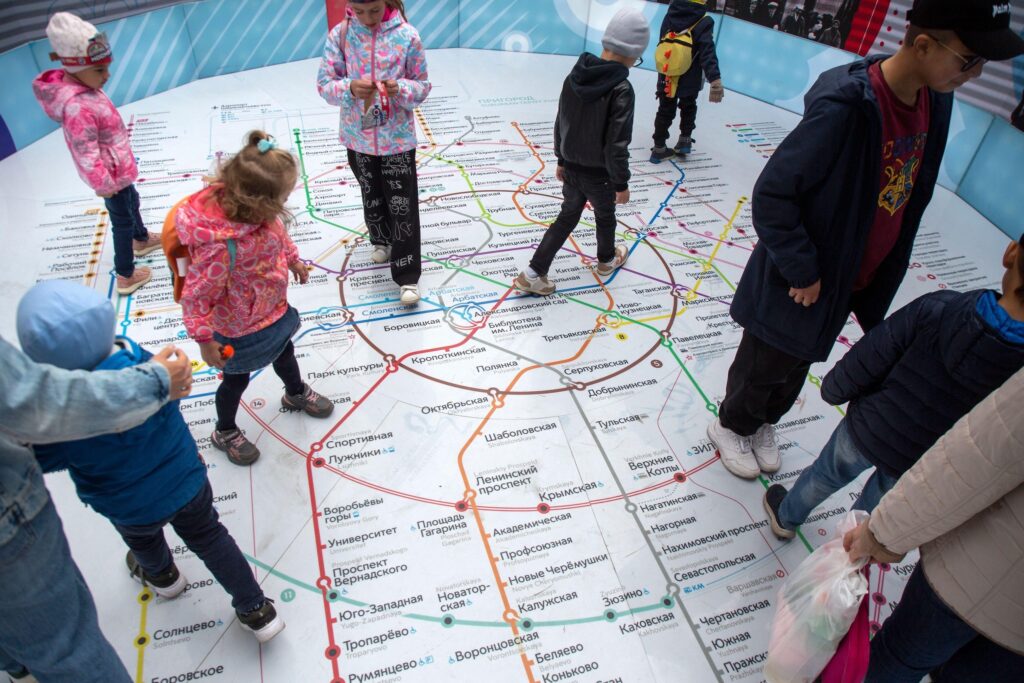Arab tourists visiting Russia often struggle to find locals who speak English – let alone Arabic, which is virtually nonexistent outside guided tours. Yet Moscow is eager to welcome them, even going so far as to translate its metro map into Arabic.
Since February 2022, when the Kremlin launched what it calls a “special military operation” in Ukraine, the streets of the capital and other large Russian cities have recorded a sharp decline in international tourists. However, travellers from countries that Moscow now considers friendly are increasingly filling the gap.
Estimates of tourist numbers vary but one thing is clear – the sector is on the mend. According to the Border Service of the FSB, Russia’s security agency, visitor numbers rose to 1.6 million in 2024. This was more than double the figure for 2023, though still less than a third of the pre-Covid levels in 2019.
The government has since reported a significantly higher figure of 4.2 million tourist arrivals in 2024, adding that the number of visitors from Oman, Qatar, Saudi Arabia and the UAE had increased six to tenfold.
Following the suspension of direct flights to Western countries in 2022, Moscow has redirected its focus toward bolstering air links with partners in the south and east. Today up to 20 direct flights operate daily between Dubai and Moscow’s three airports, alongside dozens more linking Gulf hubs with major Russian cities.
Leveraging infrastructure built for the 2018 World Cup, Russia is looking to attract more foreign visitors and the capital is leading the effort.
As Moscow’s deputy mayor Maxim Liksutov has explained, the city authorities are working to make transportation more accessible for passengers, including those visiting from abroad. One recent example: an A3-sized foldable metro map translated into Arabic, also available in digital format.
An increasing number of posh clothing shops, hotels and restaurants in the city now provide Arabic translations for their goods and services. But Arabic-speaking staff do remain scarce.
This does not appear to be deterring Arab visitors to Russia, however – and nor is the suspension of Visa and Mastercard services since 2022. In winter, many tourists are drawn to department store sales, guided tours of the city’s ornate metro stations, and ice skating amid Christmas lights and decorations.
During the summer months, Russia offers a refreshing alternative to the Gulf’s extreme heat and is increasingly trying to tailor its tourism offerings to suit the preferences of Arab visitors in general.
Tour operators say Arab tourists are especially drawn to unusual experiences near Moscow, including husky parks, eco-farms and photo sessions with bears. Activities such as snowtubing, all-terrain vehicle rides and swamp buggy excursions are also popular.
Holidaymakers might also find Russia more affordable than many global destinations. A metro ride in Moscow costs about $0.75 and entry to popular skating rinks starts at $3-$5.
On the higher end, a caviar brunch at a central restaurant can cost roughly $100 while a night at a five-star hotel in the city centre starts at $150, often including breakfast and access to spa facilities.
The presence of Gulf tourists on Moscow’s streets has grown noticeably in the past couple of years, as the Kremlin highlights its warm ties with Middle Eastern partners by hosting UAE cultural events near Red Square. However, the long-term sustainability of this tourism trend remains uncertain due to the geopolitical tensions affecting both Europe and the Middle East.
For now, Moscow and other Russian destinations seem comfortable attracting travellers who are undeterred by frequent reports of explosive-laden drones, which occasionally force airport closures and are said to be intercepted by Russian defences almost nightly.
At the same time, hoteliers, restaurateurs and others in the hospitality sector appear ready to step up efforts to welcome more foreign guests, while hoping that American and European tourists will also return someday.
Andrey Ostroukh is a former Reuters and Wall Street Journal reporter now working in communications in Moscow
Register now: It’s easy and free
AGBI registered members can access even more of our unique analysis and perspective on business and economics in the Middle East.
Why sign uP
Exclusive weekly email from our editor-in-chief
Personalised weekly emails for your preferred industry sectors
Read and download our insight packed white papers
Access to our mobile app
Prioritised access to live events
Already registered? Sign in
I’ll register later



